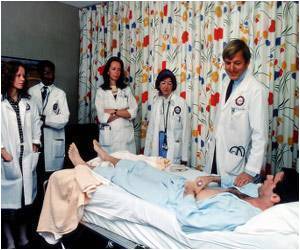
ChatGPT for Healthcare Services: Emerging Stage for an Innovative Perspective
To analyze the effectiveness of such tools in healthcare, researchers analyzed postoperative patient instructions obtained from ChatGPT, Google Search, and Stanford University for 8 common pediatric otolaryngologic procedures.‘ChatGPT-generated postoperative instructions scored lower in understandability, actionability, and procedure-specific content than Google Search.’
Tweet it Now
This phrase was entered into ChatGPT: Please provide postoperative instructions for the family of a child who just underwent a [procedure]. Provide them at a 5th-grade reading level. Similarly, this phrase was entered into Google Search: My child just underwent [procedure].What do I need to know and watch out for? The first nonsponsored Google Search results were used for analysis. Results were extracted and blinded. To enable adequate blinding, they standardized all fonts and removed audiovisuals (eg, pictures).
The primary outcome was the understandability and actionability of instructions for patients of different backgrounds and health literacy levels. As a secondary outcome, instructions were scored on whether they addressed procedure-specific items.
Overall, ChatGPT-generated instructions were scored from 73% to 82% for understandability, 20% to 80% for actionability, and 75% to 100% for procedure-specific items. Institution-generated instructions consistently had the highest scores.
Understandability scores were highest for the institution (91%) vs ChatGPT (81%) and Google Search (81%) instructions. Actionability scores were lowest for ChatGPT (73%), intermediate for Google Search (83%), and highest for the institution (92%) instructions. For procedure-specific items, ChatGPT (97%) and institution (97%) instructions had the highest scores and Google Search had the lowest (72%).
Advertisement
Despite these findings, ChatGPT may be beneficial for patients and clinicians, especially when alternative resources are limited. Online search engines are common sources of medical information for the public: 7% of Google searches are health-related.
Advertisement
Source-Eurekalert









